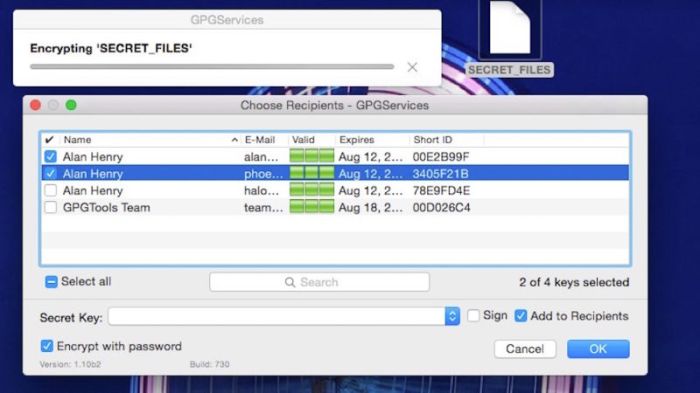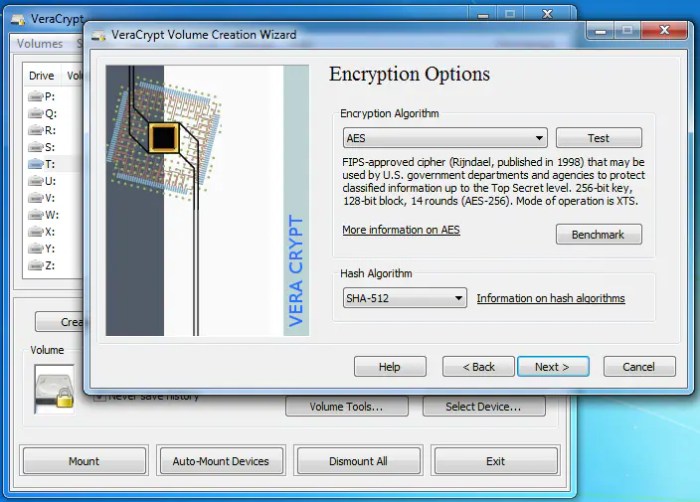Best encryption software for external hard drive – Protecting your sensitive data stored on external hard drives is paramount in today’s digital landscape. Whether you’re storing personal photos, financial records, or confidential business documents, robust encryption is essential to safeguard against unauthorized access. This comprehensive guide explores the best encryption software options available, helping you choose the perfect solution for your needs. We’ll delve into various aspects, from ease of use to security features, ensuring you understand the nuances of data protection for your external hard drive.
Understanding Encryption and its Importance for External Hard Drives
Encryption transforms readable data (plaintext) into an unreadable format (ciphertext) using a complex algorithm and a cryptographic key. Only those possessing the correct key can decrypt the data and restore it to its original form. This process is crucial for external hard drives because they are often more susceptible to theft or loss than data stored internally on a computer.
Types of Encryption:, Best encryption software for external hard drive
- Symmetric Encryption: Uses the same key for both encryption and decryption. Faster but requires secure key exchange.
- Asymmetric Encryption: Uses a pair of keys – a public key for encryption and a private key for decryption. More secure for key management but slower.
- Full Disk Encryption (FDE): Encrypts the entire hard drive, including the operating system and all data. Offers the highest level of protection.
- File-Level Encryption: Encrypts individual files or folders. Offers flexibility but requires careful management of encrypted files.
Top Encryption Software for External Hard Drives
Choosing the right encryption software depends on your technical expertise, security requirements, and budget. Here are some leading options:
1. VeraCrypt
VeraCrypt is a free, open-source, and highly regarded disk encryption software. It’s a successor to TrueCrypt and offers robust security features, including support for various encryption algorithms and on-the-fly encryption. Its command-line interface might be daunting for beginners, but its power and security make it a popular choice for experienced users. It supports both full disk encryption and file/folder encryption.
2. BitLocker (Windows)
Built into Windows Pro and Enterprise editions, BitLocker provides full disk encryption. It’s user-friendly and integrates seamlessly with the Windows operating system. BitLocker offers strong security and is a convenient option for Windows users. However, it’s not available in the basic Windows versions.
3. FileVault (macOS)
Similar to BitLocker, FileVault is Apple’s built-in full-disk encryption for macOS. It’s easy to use and offers a high level of security. FileVault automatically encrypts your entire hard drive, making it a simple and effective solution for Mac users. It’s automatically enabled on many newer Mac systems.

Source: windowsreport.com
4. Disk Utility (macOS)
macOS’s Disk Utility provides a built-in option for encrypting external drives. While not as feature-rich as FileVault, it’s a convenient option for simple encryption needs. This is a good choice for users who want basic encryption without the overhead of FileVault.
5. AES Crypt
AES Crypt is a free, cross-platform tool that provides file-level encryption using the Advanced Encryption Standard (AES) algorithm. It’s easy to use and supports various file types. While it doesn’t offer full disk encryption, it’s a great choice for securing individual files or folders.
6. AxCrypt
AxCrypt offers both free and paid versions, providing file-level encryption with a user-friendly interface. The paid version offers additional features such as cloud storage integration and team collaboration tools. It’s a good option for individuals and small teams who need a balance of security and ease of use.
Choosing the Right Encryption Software: Key Considerations
- Ease of Use: Consider your technical skills. Some software is more user-friendly than others.
- Security Features: Look for strong encryption algorithms (like AES-256) and robust key management systems.
- Platform Compatibility: Ensure the software is compatible with your operating system (Windows, macOS, Linux).
- Cost: Some software is free and open-source, while others require a paid license.
- Performance Impact: Encryption can slightly slow down read/write speeds. Consider the impact on your workflow.
- Key Management: How are your encryption keys stored and protected? Losing your key means losing your data.
Best Practices for Secure External Hard Drive Encryption
- Strong Passwords: Use long, complex passwords or passphrases that are difficult to guess.
- Regular Updates: Keep your encryption software updated to benefit from the latest security patches.
- Physical Security: Secure your external hard drive physically to prevent theft or unauthorized access.
- Data Backup: Regularly back up your encrypted data to another secure location. Even with encryption, hardware failure can occur.
- Two-Factor Authentication (2FA): If available, enable 2FA for added security.
Frequently Asked Questions (FAQ): Best Encryption Software For External Hard Drive
- Q: Is encryption enough to protect my data? A: Encryption is a crucial layer of security, but it should be combined with other security practices like strong passwords, physical security, and regular backups.
- Q: What happens if I lose my encryption key? A: You will lose access to your encrypted data. Therefore, securely storing your key is critical.
- Q: How much does encryption software cost? A: Costs vary widely. Many excellent free and open-source options exist, while others offer paid versions with advanced features.
- Q: Will encryption slow down my computer? A: Encryption can slightly impact performance, but modern hardware and algorithms minimize this effect.
- Q: Which encryption algorithm is the most secure? A: AES-256 is currently considered one of the most secure and widely used encryption algorithms.
References
Conclusion
Protecting your data on external hard drives is a critical aspect of digital security. Choosing the right encryption software and implementing best practices will significantly reduce the risk of data breaches. Carefully consider your needs and choose the software that best balances security, ease of use, and cost-effectiveness. Don’t wait until it’s too late – protect your valuable data today!
Call to Action (CTA)
Start protecting your external hard drive data now! Download and install your chosen encryption software today and experience the peace of mind that comes with knowing your sensitive information is secure.
Popular Questions
What is the difference between full-disk encryption and file-level encryption?

Source: beencrypted.com
Full-disk encryption protects the entire hard drive, while file-level encryption protects only specific files or folders.
How do I choose an encryption algorithm?
AES-256 is widely considered a strong and reliable algorithm. Look for software that uses this or a similarly robust standard.
Is it necessary to encrypt an external hard drive if it’s password-protected?
While a password adds a layer of protection, encryption provides a far more secure method of data protection, even if the drive is lost or stolen.

Source: wondershare.com
What happens if I lose the encryption key?
Losing the encryption key means you’ll likely lose access to your data permanently. Choose a robust password management system and store your key securely.
Can I encrypt a hard drive already containing data?
Yes, many encryption software options allow you to encrypt an existing hard drive, though the process may take some time depending on the size of the drive and the speed of your computer.
